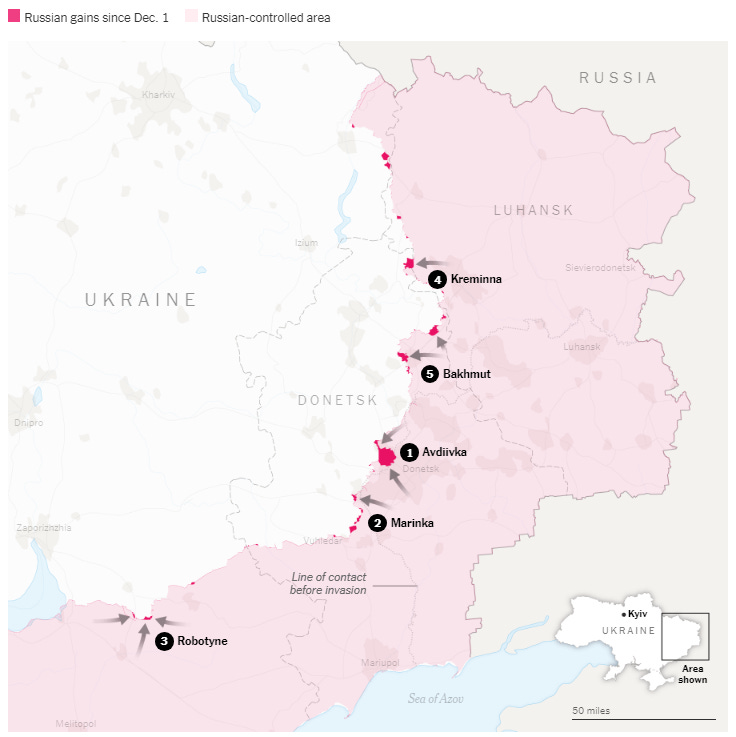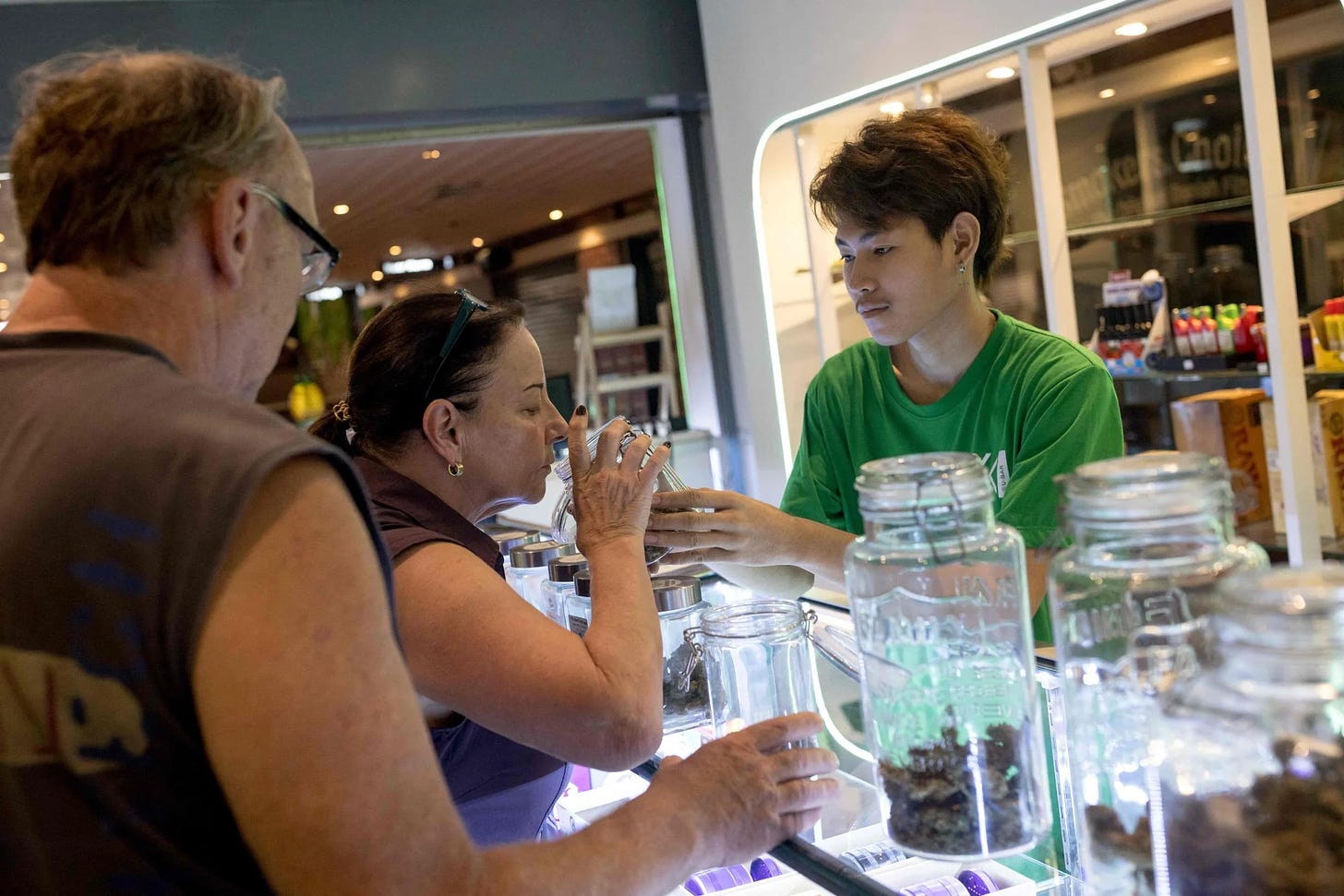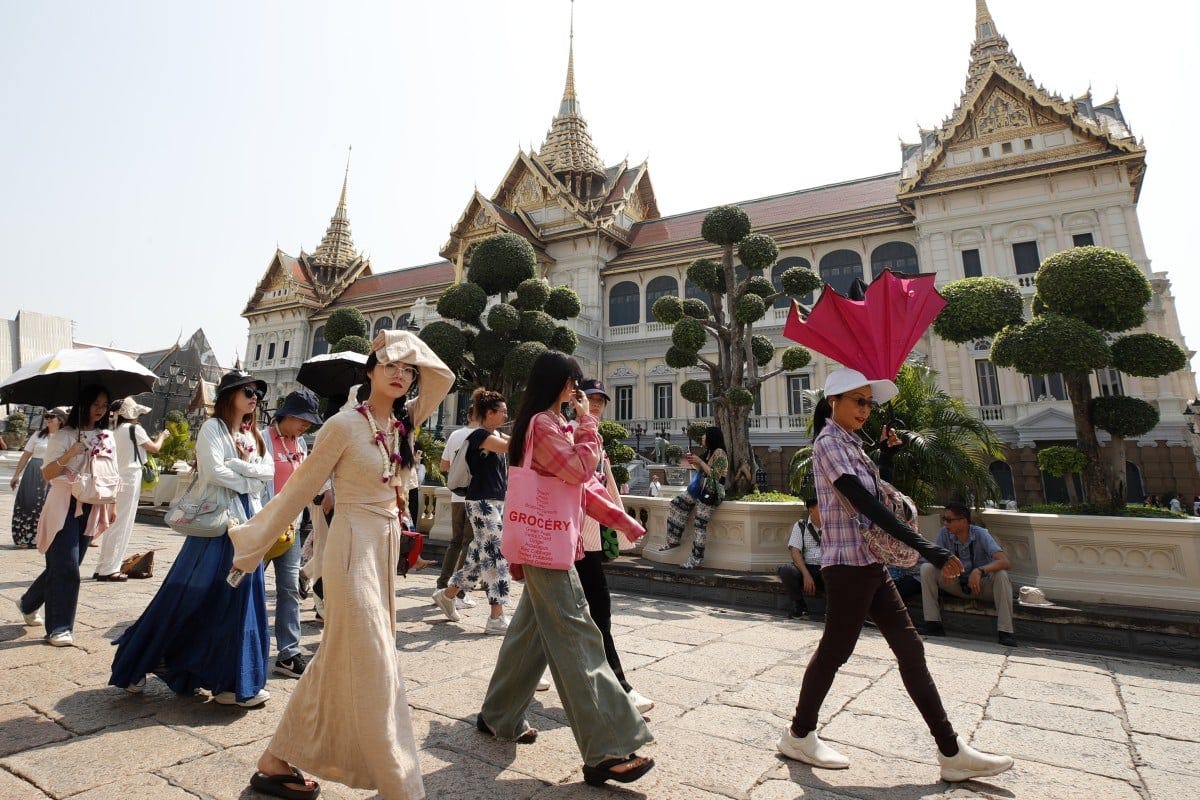Souhteast Asia & World Briefs (23 Feb): What’s next after 2 Years of Russia/Ukraine conflict; Taylor Swift’s exclusivity in Singapore; Updates on cannabis ban in Thailand
Welcome to Friday, readers!
We start off with a the current overview of the Russia/Ukraine conflict after two years. Other key stories are the drama of Tayloy Swift’s exclusive concert in Singapore within Southeast Asia, sparked by the Thai Prime Minister himself.
Let’s get right into it
Tables of Contens and Summaries
Geopolitics
🌍Two Years into the Ukraine Conflict: A Strategic Standstill with Russia Gaining Momentum
Ukraine, defying expectations, initially repelled Russia's invasion but now faces a deadlock with no significant land gains by either side. Russia's recent capture of Avdiivka marks a symbolic victory, highlighting Ukraine's precarious position as it enters the third year of conflict.
Social/Economic
🎵 Taylor Swift's Singapore Concert Grant Sparks Mixed Reactions; Singapore Remains Silent on Regional Exclusivity Agreement
Taylor Swift's exclusive concert in Singapore, backed by a government grant, has stirred mixed reactions. While some fans are disappointed by the regional exclusivity, others praise the strategic move for economic and tourism benefits.
🍃 Thailand Plans to Ban Recreational Cannabis Use by Year's End
Thailand's Health Minister announced intentions to ban recreational cannabis by year's end, threatening the existence of thousands of cannabis businesses that emerged following decriminalization. The proposed legislation aims to address the regulatory gap and curb drug addiction.
✈️Australia's Tourism Industry Faces Challenges as Chinese Tourists Opt for Visa-Free Southeast Asia
Australia is witnessing a decline in Chinese tourists as cost-conscious travelers prefer visa-free Southeast Asian countries. Rising travel costs and economic uncertainties in China are contributing factors, leaving Australia's tourism sector struggling to recover post-pandemic.
Geopolitics
Two Years into the Ukraine Conflict: A Strategic Standstill with Russia Gaining Momentum

Ukraine has surprised the world by not only enduring Russia's invasion but also pushing back its forces initially. However, the conflict has since settled into a deadlock, marked by intense fighting without significant territorial changes.
Entering the third year, Ukraine is on the defensive, facing challenges similar to the onset of the war—outnumbered and outgunned by Russian forces.
Russia appears to have gained momentum, especially with its recent capture of Avdiivka, symbolizing a significant victory. The situation for Ukraine is precarious, with the winter marking a period of vulnerability.
Critical Shortages: A halt in U.S. military aid and a dire lack of ammunition and manpower are key issues for Ukraine, increasing the lethality of conflicts and straining its defensive capabilities.
Both soldiers and civilians in Ukraine are experiencing profound fatigue, with soldiers enduring long periods without breaks and civilians coping with constant air raid alarms and the omnipresent specter of loss and mourning.
Despite the hardships, a strong belief in victory persists among Ukrainians, contingent on sustained support from allies.
Long-term Outlook: Experts predict a prolonged conflict that could become increasingly deadly. The potential consequences of a Ukrainian defeat are stark, including massive bloodshed, a refugee crisis, and a bolstered Russian presence near NATO borders.
The focus for Ukraine in the coming year will be on bolstering its forces and infrastructure while managing to defend against further Russian advances. The outcome remains uncertain, with the possibility that the following years could prove decisive.
Sanctions against Russia have had limited success, with Putin's influence remaining strong outside of North America and Europe.
Social/Economic
Taylor Swift's Singapore Concert Grant Sparks Mixed Reactions; Singapore Remains Silent on Regional Exclusivity Agreement
Taylor Swift's Singapore-exclusive concert, fueled by a government grant, has led to mixed reactions online, with some fans disappointed and others applauding the strategic move.
The controversy ignited when Thailand's Prime Minister Srettha Thavisin alleged that the Singaporean government provided Taylor Swift with a payment, reportedly under the agreement that Singapore would be the exclusive Southeast Asian destination on her tour schedule for the upcoming month.
Allegedly, Singapore paid Swift $2.8 million per show, aiming to leverage the event for significant economic and tourism benefits.
Observers note that such grants are often awarded based on potential returns but come with risks, including possible no-shows by the artists.
Government Justification: The Singapore Tourism Board and the Ministry of Culture, Community and Youth defended the grant, emphasizing the expected boost to the economy from Swift's concerts.
While some fans express frustration over the tour's limited Southeast Asian presence, others praise Singapore's foresight in securing such high-profile events.
Swift's tour is expected to generate substantial economic benefits, with her concerts potentially bringing in over $1 billion in global revenue and significant boosts to local economies.
Singapore's Ambition: Beyond immediate economic benefits, hosting Swift's concerts positions Singapore as a premier destination for major events in the region, contributing to its long-term tourism and cultural strategy.
While Singapore secures its spot with Swift's exclusive concert, the move also highlights the potential for Southeast Asia to attract more high-profile events, benefiting the entire region.
In response, Thailand's Prime Minister has proposed measures to attract top performers, including visa-free travel and relaxed regulations for concerts, aiming to enhance Thailand's appeal to international artists.
Thailand Plans to Ban Recreational Cannabis Use by Year's End
Thailand's Health Minister announced plans to ban recreational cannabis use through new legislation expected to be reviewed by lawmakers before October, aiming for approval before parliament recesses.
Following decriminalization two years ago, the absence of regulations has led to widespread recreational use, raising concerns over drug addiction and misuse.
The proposed bill threatens the survival of thousands of cannabis businesses across Thailand, from dispensaries to growers, amidst claims they've been boosting tourism recovery.
Proposed Restrictions: Public smoking and recreational use inside homes could lead to fines up to 60,000 baht ($1,700), with sellers facing jail time or fines. The bill also introduces stringent licensing for cultivation, sales, and distribution.
Existing dispensaries can operate until their licenses expire, but must comply with new regulations without a grace period, risking severe penalties for non-compliance.
Critics argue the ban could devastate the burgeoning industry, endangering investments worth 7 billion baht and over 14,000 jobs, pushing the sector underground.
Despite potential economic impacts, the Health Minister insists the move aims to prioritize public health without harming the industry's economic contributions, provided businesses adhere to medical-use standards.
The government views the bill as a moderate solution compared to reclassifying cannabis as a narcotic, emphasizing the balance between economic growth and health safety.
Australia's Tourism Industry Faces Challenges as Chinese Tourists Opt for Visa-Free Southeast Asia
The Australian tourism sector is experiencing a downturn in Chinese visitors, as cost-conscious travelers from China increasingly favor visa-free destinations in Southeast Asia such as Singapore, Thailand, and Malaysia.
Australia's reliance on visa protocols is contributing to its less competitive position, especially at a time when nearby countries have eliminated such barriers, attracting more tourists.
Economic uncertainties in China, including a sluggish economy and property sector issues, have led Chinese tourists to seek more affordable and accessible holiday options.
Travel expenses to Australia, including flights and accommodation, have surged by 20% compared to pre-Covid levels, further discouraging Chinese visitors.
Tourism Recovery: While destinations like Singapore, Thailand, and Malaysia are witnessing a rebound in tourism exceeding pre-Covid levels, Australia's tourism sector has only partially recovered, with businesses like Easy Going Travel Services Pty Ltd in Perth operating at 40% of their pre-Covid activity.
The Australian Tourism Export Council (ATEC) reports a significant drop in the proportion of Chinese visitors during the Lunar New Year period, highlighting the ongoing struggle to attract this key demographic post-pandemic.
Interesting Reads
Instagram’s Uneasy Rise as a News Site by the New York Times





